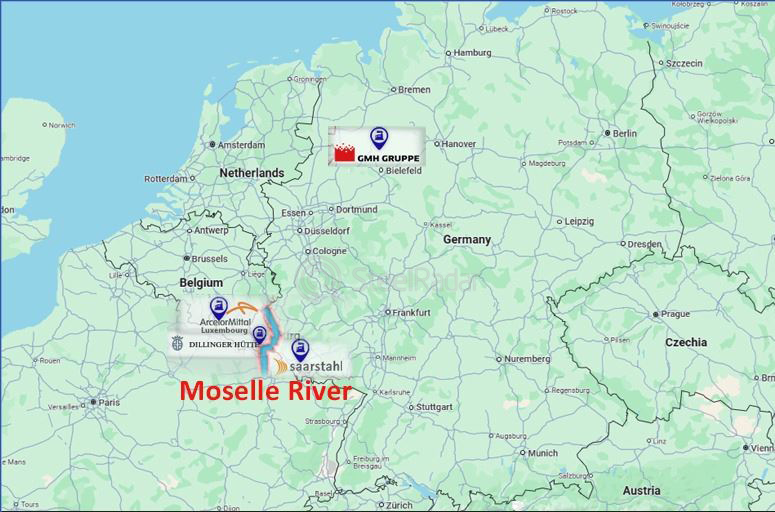In an accident on the Moselle River in western Germany last week, a ship transporting scrap crashed into one of the crossings on the river, causing serious damage. This accident caused both major disruptions in the logistics sector and significant problems on international trade routes. The accident had a negative impact on river transportation, especially between Germany, France and Luxembourg.
Temporary solution and rescue of vessels
After the accident, the Muden lock, located in a critical area of the Moselle River, became unusable. Authorities developed a temporary locking plan to release some of the stranded vessels. Thanks to this temporary solution, the first ship was able to set sail again on Monday morning, December 16. However, it is stated that this solution is limited and full repairs can only be completed in the spring of 2025.
The Muden lock is a crucial transit point for ships carrying scrap metal, agricultural products and industrial freight. After the lock doors were damaged, ship traffic came to a complete halt and more than 70 ships were stranded along the river. Authorities plan to release five to six ships every day and aim to have all ships released by the end of the year.
Impacts on trade and scrap markets
The shutdown of the muden lock has caused major disruptions to steel mills and the scrap supply chain in Germany. Major companies such as ArcelorMittal Luxembourg and German steel producers such as Dillinger Huttenwerke and Saarstahl are experiencing difficulties in scrap deliveries due to increased logistics costs. These companies had to turn to alternative transportation methods due to the unavailability of barges.
Rising truck costs in the region have also made it difficult for suppliers in southwest and northwest Germany to ship material to Luxembourg. However, market experts expect scrap prices and the amount of scrap destined for exports to increase.
Impacts for France and Luxembourg
The accident also severely affected the connections of the Moselle River in western Germany to France. While the activities of important port cities such as Trier, Bernkastel-Kues and Cochem were disrupted, Schengen, one of the economic centers of Luxembourg, was also negatively affected. The Moselle River is a critical waterway that joins the Rhine at Koblenz and forms an important part of logistics activities in Europe.
Conclusion and prospects
The incident on the Moselle River has deeply affected the international logistics and trade network, with full repairs expected to take a very long time. While authorities have tried to mitigate logistics problems with temporary solutions, trade and industrial activities in Europe have been significantly affected by the disruption.










Comments
No comment yet.